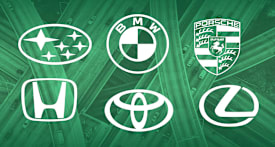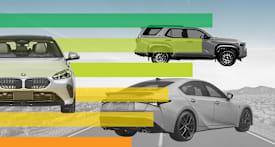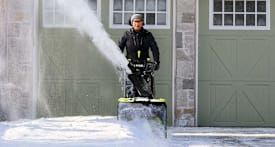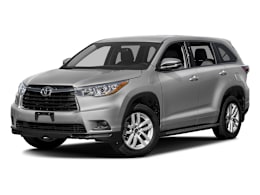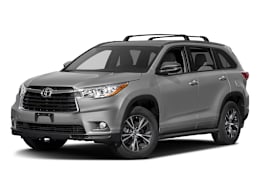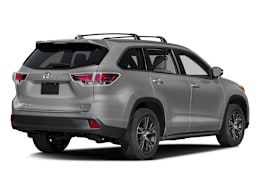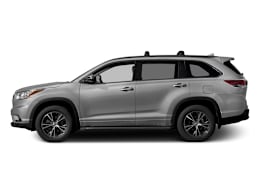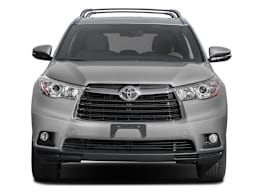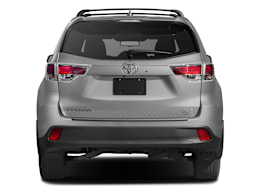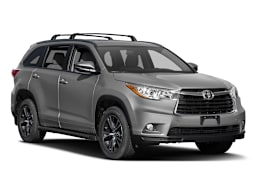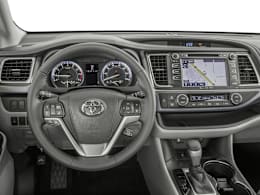You're not drawn to the Toyota Highlander for its snazzy styling, exhilarating performance, or engaging driving experience. Its appeal lies in its functional, family-friendly nature, frugal gas mileage, consistently good reliability, and good manners.
Overall, the Highlander combines the practicality of an SUV with the refinement of a good sedan. And year after year, that has helped it rank among the top SUVs we've tested and do well in our owner satisfaction survey. Reliability has also been above-average, so we heartily recommend it.
Most Highlanders come with a refined and punchy 270-hp, 3.5-liter V6; coupled with a six-speed automatic transmission, it returned 20 mpg overall. While impressive when introduced, some newer rivals, including the Kia Sorento and Nissan Murano, can beat that figure.
The Hybrid version takes the smooth, powerful V6 from the regular Highlander and adds a hybrid battery pack and three electric motors, increasing horsepower by 10, to 280. In place of the conventional six-speed automatic transmission, the Hybrid uses a continuously variable transmission, which is well-matched to the engine. That combo delivers 25 mpg overall, which is 25 percent better than the regular Highlander's 20 mpg but 2 less than in the previous Highlander Hybrid. The hybrid powertrain is available only with the top-of-the-line Limited trim, making for an expensive proposition, with a starting price approaching $49,000. A four-cylinder engine is available only with front-wheel drive.
While not really sporty, the Highlander corners soundly, with minimal body lean and prompt turn-in response. The steering is appropriately weighted, although it doesn't provide much feedback. When pushed to its handling limits, the Highlander proved predictable and stable.
A trade-off for improved handling is ride comfort that's somewhat less plush than in the previous model. The Highlander feels steadier and more tied down, and it's composed and controlled at highway speeds. But it's not as isolated at low speeds.
Inside, drivers will find plenty of space behind the steering wheel. The wide front seats are comfortable, well-padded, and supportive. At first glance, the cabin looks well finished, but a closer look reveals some evidence of cost cutting and a bit too much hard plastic. A three-person second-row bench seat lets the Highlander carry up to eight people. Comfortable captain's chairs, standard in Limited versions and a $250 option in the XLE, give the interior an airier feel and easier access to the third row, but they limit the vehicle's capacity to seven people. There's plenty of head, foot, and leg room, but the seats are a bit low.
The three-person third-row seat is now wider, but it's still not a great place for adults. There's ample room behind the second-row seats for carrying gear, and if you need more space, you can easily fold all of the second- and third-row seats.
Controls are mostly simple, with large, well-labeled buttons. XLE and Limited models have a large, versatile 8-inch touch screen for the infotainment system. You can split the screen display to show more information or customize the on-screen buttons so that, say, your most often used audio sources are closer to you. There are some touch-sensitive buttons, which are large, widely spaced, and easy to use, but they're also easy to activate accidentally by brushing across them.
Connecting your phone via Bluetooth is simple, and voice quality is good. Voice commands can be used to launch apps, make phone calls, play music, and enter addresses and find points of interest in the navigation system. It's a very good system that lets you speak naturally.
Overall, the Highlander is an appealing choice that does a lot of things well. A history of good reliability and good resale value makes it an easy choice for many people.
